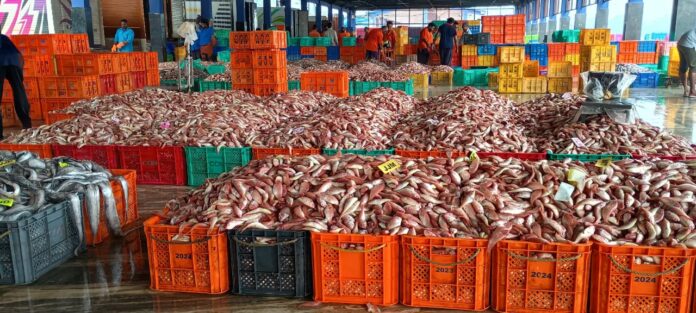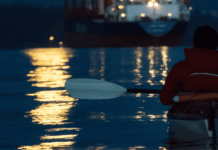The Food and Agriculture Organization (FAO) of the United Nations, in collaboration with the Bay of Bengal Programme Inter-Governmental Organisation (BOBP-IGO), will support India and neighbouring countries in designing national action plans to strengthen small-scale fisheries and protect millions of livelihoods.
A three-day regional capacity-building meet, beginning September 17 in Chennai, will lay the foundation for country-specific roadmaps under the National Plan of Action for Small-Scale Fisheries (NPOA-SSF). The initiative directly aligns with the UN’s Sustainable Development Goal 14 (Life Below Water) and FAO’s global guidelines on ensuring sustainable small-scale fisheries.
Delegations from India, Bangladesh, Sri Lanka, and the Maldives will take part in the deliberations. Union Fisheries Secretary Abhilaksh Likhi is set to inaugurate the programme, which will bring together FAO experts, policymakers, marine scientists, and representatives from the fishing sector.
BOBP-IGO Director Dr P. Krishnan said the upcoming action plans will address vital issues ranging from fisher rights and safety at sea to gender inclusion and sustainable management of marine ecosystems. “This effort could strengthen the future of fishing communities across the Bay of Bengal, ensuring both livelihood security and healthier aquatic food production,” he noted.
Experts point out that small-scale fisheries remain the backbone of coastal communities, but the sector is under strain from climate change, rising competition for marine resources, and declining fish stocks. Dr Lena Maria Westlund, International Fisheries Analyst at FAO, stressed the need for practical frameworks. “Small-scale fisheries are the backbone of coastal communities, providing food security and livelihoods to millions. The discussions and capacity-building activities in Chennai are crucial steps in helping each country develop actionable strategies to safeguard the sector,” she said.
For India, scientists from leading institutions such as the Central Institute of Fisheries Technology (CIFT), Central Marine Fisheries Research Institute (CMFRI), and the Fishery Survey of India (FSI), alongside fisheries officers and local stakeholders, will contribute to shaping the roadmap. Their focus will be on aligning technology, sustainability practices, and community participation to build resilience in the sector.
The Chennai meet is expected to conclude with a well-structured framework, equipping national task forces across the Bay of Bengal region with the tools and expertise to implement inclusive and sustainable practices. Organisers say the effort is designed not just to safeguard livelihoods but also to ensure healthier marine ecosystems that can support future generations.
By tackling socio-economic, environmental, and governance challenges in a coordinated manner, the FAO-BOBP partnership aims to provide a model for other regions facing similar pressures in small-scale fisheries.





